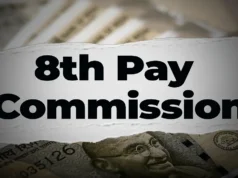
Should you file your ITR (income tax return) late, will you be qualified for a refund? Many people expressed this worry when the Lok Sabha adopted a new Income Tax Bill 2025. Many experts have noted that the new income tax bill, which is probably relevant starting FY2026-27, emphasizes that taxpayers will not be qualified to get a refund if they do not file their income tax returns before the due date. On different social media sites, experts are highlighting the same.
“Clause 263(1)(a)(ix) of The New Income Tax Bill 2025 requires that a person seeking refunds under Chapter XX must mandatorily file income tax returns within the “due date,” claims Partner, Tax Connect Advisory Services LLP, Vivek Jalan. This is in sharp contrast to the Income Tax Act 1961, which allows a person—even those who file a belated return until December 31st, the assessment year—to claim refunds due.
“On top of that, Clause 433 mandates that a refund should be sought during a return filing. Such a clause would cause difficulties for individual taxpayers who miss the due dates for sincere reasons. Under such circumstances, he says, even in cases of excess TDS deduction, they can be denied refund claims.
Other analysts also highlight this uncertainty, which means that should an individual fail to file their ITR before the due date—July 31st for individual taxpayers—they will not be qualified for any refunds should they file their returns subsequently.
What confuses—intentional mistake or change of rule?
“Under the current Income Tax Act, 1961, there are no provisions that prohibit an assessee from claiming a refund solely on the ground that the return of income was not filed within the prescribed due date,” says a new report on the income tax bill by RSM Astute Consulting, a tax advisory firm.
However, the Income Tax Bill 2025 adds a specific subsection that specifically forbids an assessee from seeking a refund should the income return not be filed within the designated due date. It is important to observe whether this is an unintentional error and whether this clause is changed before passing the law.”
As CA Ashish Niraj states, “Section 263 of the Income Tax Bill 2025 controls the several due dates of ITR filing. The new bill only lists due dates for different returns; it does not reference belated returns, so should someone file his return after the due date, he will not be claiming a refund, which was earlier permitted until December 31st.
As he says, the income tax bill’s Section 263(1)(a)(ix) makes filing within the due date mandatory to claim a refund.
According to CA Bhavesh Jindal, “a draconian provision relating to the issuing of a refund is proposed under the return filing section itself, i.e., section 263(1)(a)(ix), which requires that a person who intends to claim a refund shall furnish a return of income within the due date. Although a clause limits the carryforward of some losses should a return be filed after the due date, the stated limitation does not exist under the current tax law. Restricting the refund, however, in a situation whereby a return is submitted after the due date will burden the taxpayers greatly and seem to be a bit harsh. With a recommendation hopefully in hand, the committee will be able to relax in the updated print,” he notes.
Under the Income Tax Act 1961, what present clauses allow refund claims?
Section 237 of the erstwhile Income Tax Act 1961 entitles any person who satisfies the Assessing Officer that the amount of tax paid by him or on his behalf or treated as paid by him or on his behalf for any assessment year to be refunded under the Act for that year.
All that allowed this refund was to file the ITR under Section 139 within the due date of filing. The Income Tax Act lets a normal return be filed until July 31st (individual taxpayers), and a belated return be filed under Section 139(4) until December 31 of the relevant assessment year.
Late or belated ITR filers under section 234(F) of the I-T Act, 1961, will be liable for a penalty of Rs 5,000. Should their annual taxable income be less than Rs 5,00,000, their penalty would be Rs 1,000. This covers even if the person files a belated ITR claiming zero tax liability.
The I-T department states that there is no change in the refund policy; taxpayers may still claim the following due date.
In this respect, the I-T department has clarified that persons claiming a refund under Chapter XIX must file a return of income under Section 239 according to the Income Tax Act, 1961. The bill will now incorporate u/s 263(1)(ix), this need. The other clauses about refund policies stay the same.
“The returns of income filed under u/s 263 or in response to a notice u/s 268 will be handled under u/s 270, so deciding any sum payable or refund due, which will be granted u/s 271(1)(e). Should a refund be sought on an invalid return, Section 239 of the Income Tax Bill (reiterating s. 119 of the I-T Act, 1961) may provide relief. The bill does not thus change in terms of refund-related clauses.
Should I register my ITR after the due date, will I be entitled to any refund?
Every clause about refund claims stays the same. Under the new income tax bill, which is set to take effect beginning April 1, 2026, taxpayers will thus be able to claim refunds even if they file their ITR after the due date.
Says CA Ashish Karundia, “We have come across books making rounds claiming that changes have been made to the income-tax refund provisions under the Proposed Income Tax Bill 2025, requiring taxpayers to file their returns on time to claim a refund. We want to clarify things by saying this is untrue and incorrect.”
“The proposed income tax bill 2025 has only listed several circumstances that call for filing a return. Compared to the present Income Tax Act of 1961, the income tax refund rules have not changed. Under the proposed Income Tax Bill 2025, taxpayers can still claim refunds even if they file a revised or belated return, adds Karundia.
Should I file my ITR after the belated date? Will I be able to get my refund?
Should taxpayers neglect to submit the belated return by December 31st, they forfeit their entitlement to a refund via regular ITR submission. Under such circumstances, the only choice accessible is to submit a condonation request under Section 119(2)(b) using the Pr. CITs/CITs. This request is handled case by case and must be physically sent to the income tax department under a legitimate cause for the delay. Approval of such uses rests with the tax authorities at their will.
“Filing an ITR after the due date does not automatically disqualify the taxpayer from claiming a refund,” said TaxBuddy.com founder Sujit Sudhakar Bangar. Refunds can still be claimed using a belated return, but should the return not be filed by December 31st, the refund can only be sought using Section 119(2)(b). The new tax system does not change these filing deadlines; thus, the belated return clause is still valid.”









